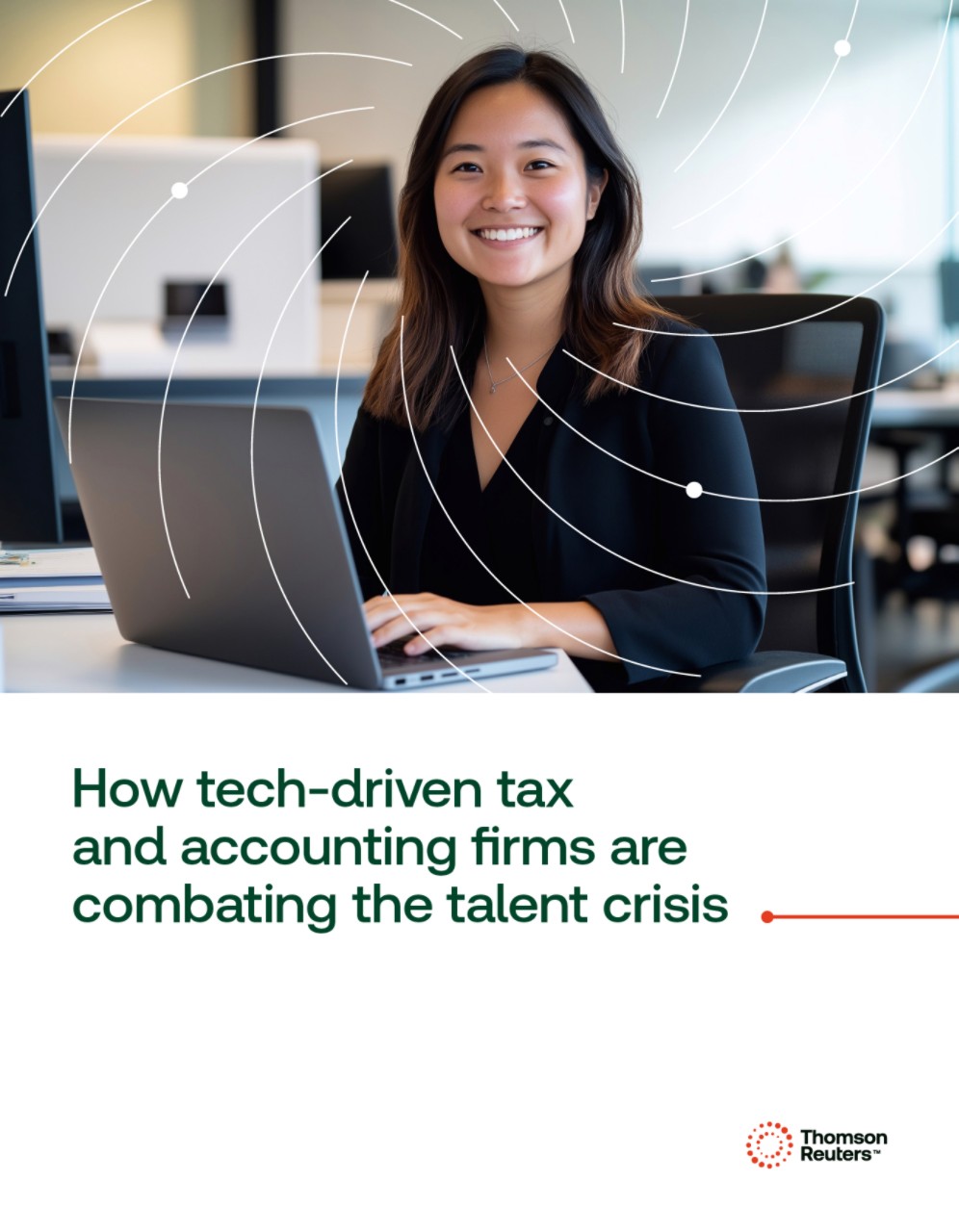Investing in training for your team in the age of AI.
The accounting profession is right in the middle of an AI-powered transformation, and firms must make sure they are upskilling their accountants to stay competitive.
However, in light of strained firm capacities across the profession, firms may be wondering how they can effectively meet the growing list of needs. For many, the answer lies in technology and AI.
This article will explore how current technology can help accountants find the time they need to broaden their skillsets and further propel their career.
Jump to ↓
What is upskilling?
What skills do accountants need today?
How to upskill accountants on AI
What are the benefits of upskilling your accountants?
What is upskilling?
Upskilling is when an accountant broadens their existing skillsets to further advance their career. Upskilling is not to be confused with reskilling. Upskilling enables accountants to further their professional development and advance themselves up the career ladder by learning expanded skillsets. Reskilling, on the other hand, implies a lateral move in one’s career and typically means learning skillsets outside of their existing skillsets.
There are several ways that firms can support and upskill talent, including sending professionals to seminars and training. Attending such events can improve staff engagement and morale and enables them to bring back fresh perspective and new learnings that can be shared with other team members.
Conference
SYNERGY for Tax, Audit, and Accounting Professionals
Register now ↗
What skills do accountants need today?
In today’s complex business environment — riddled with ever-changing regulations, advancements in technology, and rising client demands — the need to grow and adapt has perhaps never been greater. To keep up, accountants must possess new skillsets.
Obviously, the specific skills needed vary by job title, but in general, there are certain hard and soft skills that professionals must not overlook.
Strategic and advisory skills
In 2025, the most sought-after accountancy skills will be those that blend technical expertise with strategic business influence. Accountants need to communicate financial insights in a way that shapes business strategy, demonstrating how those insights lead to meaningful action, while building relationships and developing commercial awareness.
Data analytics and interpretation
Accountants are now expected to analyze and interpret complex datasets to provide strategic insights. Analytical thinking remains the most sought-after core skill among employers, with seven out of 10 companies considering it essential in 2025.
Proficiency in data analytics, financial software, programming (Python, SQL), cybersecurity, and cloud computing can help accountants improve efficiency and provide strategic insights.
AI and technology proficiency
Every professional needs to think about how they can upgrade their tech skills to stay competitive. Proficiency in accounting software, data analytics tools, and emerging technologies like artificial intelligence (AI) and blockchain is becoming essential.
Critical thinking and problem-solving
Critical thinking is key for the ability to challenge and critically assess data to uncover what makes sense and what doesn’t, which is crucial for identifying outliers in reports and determining whether an issue is a real problem or an opportunity to optimize.
Communication and collaboration
Effectively conveying complex financial information to non-financial stakeholders is another critical skill. Leadership and team collaboration are not optional, as accountants often lead cross-functional teams and need to inspire confidence and cooperation.
Continuous learning and adaptability
Adaptability is key due to constant changes in accounting, such as new standards, technologies, and client interaction platforms. The rapid pace of change necessitates a commitment to continuous learning, with resilience, flexibility, and agility expected to grow in importance. Accountants who embrace lifelong learning will be better positioned for success.

Courses
Professional development for accountants and auditors
Learn more ↗
How to upskill accountants on AI
As AI continues to reshape the accounting profession, forward-thinking leaders must prioritize strategic upskilling initiatives to ensure their teams remain competitive and effective. Most accounting professionals should have a basic AI upskilling plan in place immediately and aim to develop fundamental capabilities within 12-18 months.
However, only 25% of tax and accounting firms are actively investing in AI training for their employees, creating a significant opportunity for organizations that act decisively. Professional bodies like PCAOB and AICPA should lead the way in developing training resources and standards, while firms should provide practical, hands-on experience through pilot projects that allow accountants to apply AI tools to real-world tasks such as automating routine processes, enhancing data analytics, and improving client advisory services.
Beyond technical training, leaders must cultivate complementary skills including critical thinking, strategic advisory capabilities, and data interpretation — skills that will differentiate human accountants in an AI-augmented environment. Accounting firms should:
Establish structured learning
Allocate dedicated time for AI exploration
Create mentorship programs that connect tech-savvy professionals with those developing their AI literacy
Investing in AI upskilling now enables accounting leaders to prepare their firms for the future and helps professionals offer strategic insights beyond what technology can deliver.
What are the benefits of upskilling your accountants?
For starters, upskilling accountants makes for a more well-rounded staff that can better meet clients’ needs and expectations and, ultimately, drive greater firm profitability.
Another benefit is that it can help firms better attract and retain talent. This is a critical factor to consider given today’s talent shortage. Accounting professionals, especially newer staff members, want to work for a firm that fosters a culture of professional growth and development. This helps boost employee morale and drive greater engagement.
Additionally, accountants who use generative AI can support more clients, close the books faster, and provide higher-quality service. Research shows that firms with a visible AI strategy are 3.1x as likely to be experiencing at least one form of ROI compared to firms without any significant plans for AI adoption.
By empowering your accountants with upskilling their careers today, you position your firm to deliver superior client outcomes while building a more engaged, future-ready workforce.

White paper
How tech-driven tax and accounting firms are combating the talent crisis
Read white paper ↗





.jpg)





















